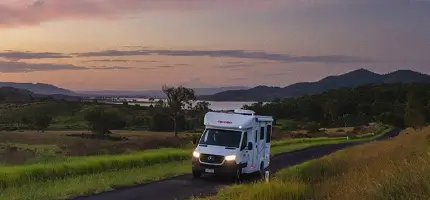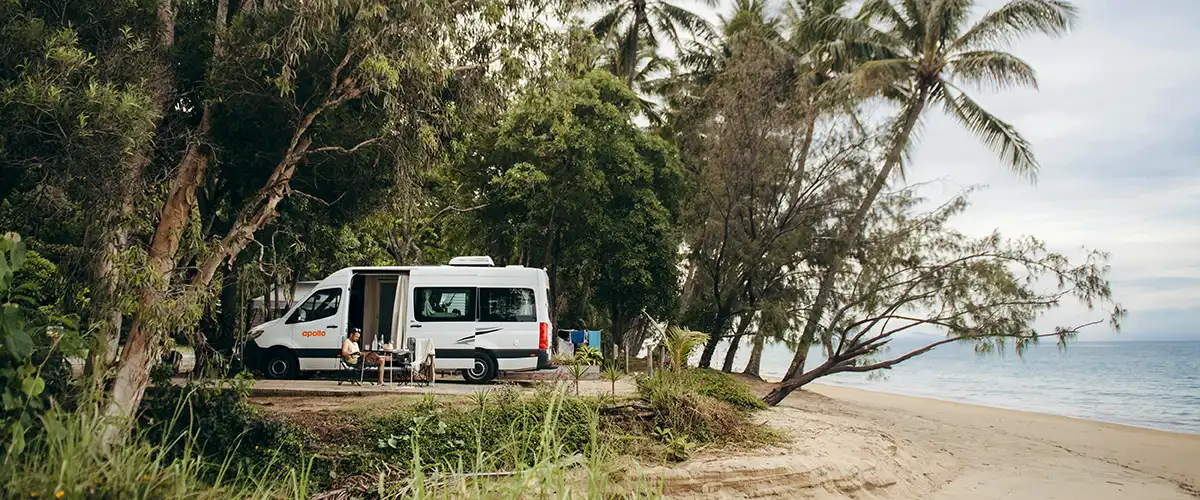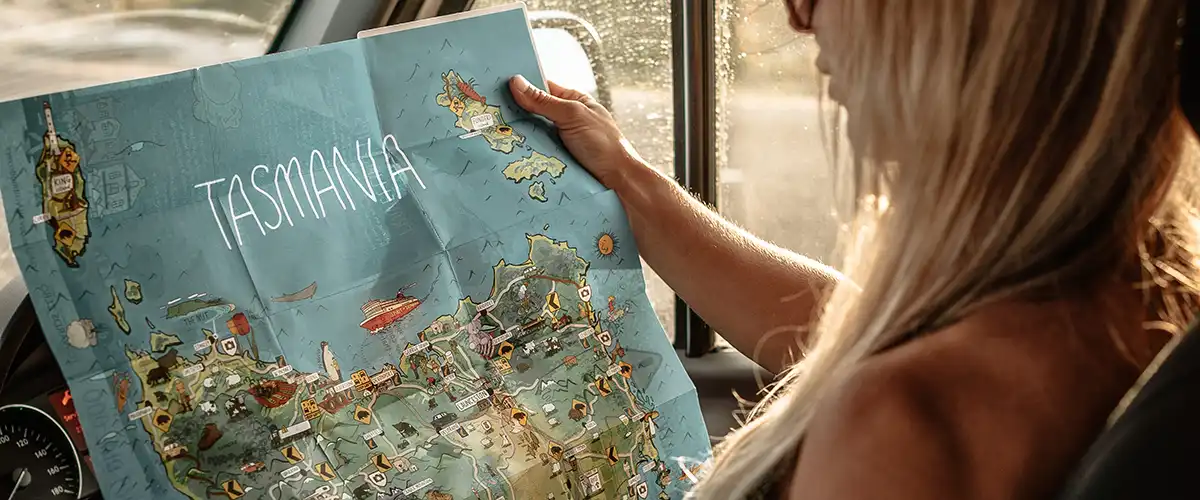Hiring a camper van is one of the most memorable ways to see Australia and New Zealand. Both countries are equipped with facilities like campgrounds and dump stations, making it easy for a nationwide road trip. Not only do you get freedom and flexibility, travelling on a home on wheels can also save you a lot of money. You get to wake up to the sound of crashing waves, make breakfast at your own pace and stay at a location as long as you want. Furthermore, if you hire a 4WD camper, it can take you to remote areas for a unique adventure away from the crowd.
Over the years, Aussie Campervans have helped more that 30,000 travellers on their road trip adventure. And we have compiled a list of commonly make mistakes you can avoid.
1. Failing to coordinate their flight arrival time with the operating hours of the camper van depot.
This is one of the most common mistakes travellers make when they plan their travel. To save money, they often choose to book the cheapest flight, which happens to arrive at odd hours in the night. As most camper van depots only operate from 09:00 to 15:30, they end up paying more for a night in the hotel, or wait for long hours at the airport. This may also cause fatigue and affect driving.
2. Assuming that all camper vans can go off grid.
Many first timers expect camper vans or RVs to have off grid capabilities. They are not aware that high voltage appliances like a hair dryer or microwave requires 240v hook up.
Here is a basic guide of how power in a camper van works.
• Most campers will have a 12v house battery that will power the fridge, water pump and lights when the camper is off grid.
• This house battery lasts approximately 12-18hours depending on usage.
• The house battery receives a trickle charge when the camper is being driven, and when the camper is equipped with a solar panel (Solar panels do not power the camper. It’s sole function is to supplement the house battery charging.)
• It is recommended for campers to spend the first night and at least every other night at powered sites to give the house battery a full charge.
• High voltage appliances and power points in the camper only work when the camper is connected to 240v mains power.
3. Packing hard suitcases instead of soft bags.
Camper vans have very limited storage space as it is taken up by equipment such as the bed, kitchen and shower or toilet. The storage compartments are often smaller and would fit soft bags better.
Tip: If you doing a round trip, it is worth checking with the branch if you can leave excess luggage behind.
4. Not having a working local phone number.
Many international travellers avoid buying a local sim card in order to save cost. Or some may have a carrier locked phone that prevents them from using a local number. This becomes a problem when they are unable to call for assistance in an event of a breakdown or accident.
5. Not reporting malfunction or accidents as soon as it is discovered.
Many travellers make the mistake of not reporting a damage or incident immediately because they have purchased the highest insurance cover that gives them $0.00 liability.
However, reporting an incident as soon as it is discovered is a requirement in the rental agreement signed. Failing to do so may be considered as a breach, and nullifies the insurance cover.
Important: Every issue no matter how small it is needs to be reported. A reported incident will give the branch a chance to remedy and rectify the issue as soon as possible or determine if a compensation will be offered. The branch may not provide compensations if an issue was only mentioned after the trip has ended.
6. Not pre-booking campsites.
Campsites can get booked out very quickly especially during peak season like school holidays and festive seasons. Pre-booking is highly recommended to avoid disappointment.
7. Not getting the right level of insurance coverage.
A significant number of travellers are often unaware of the security bond required for their rental. They tend to opt for the most economical Standard Package and are subsequently taken aback when they're required to pay a substantial security deposit (ranges from $3000 to $8000) upon pickup.
By booking the Inclusive Package or Collision Damage Waiver, the vehicle damage liability and security bond will be reduced. It also gives travellers peace of mind when travelling.
8. Not checking the road restrictions before booking the camper van.
Many national parks in Australia require a 4WD camper as the roads are unsealed. A travel restrictions clause can be found in the Rental Terms and Conditions available at the time of booking. Some of the popular destinations that often require a 4WD camper include Darwin, Alice Springs, Broome, Perth, Cairns etc.
2WD campers are not permitted to be driven on unsealed roads. If a 2WD camper is damaged on an unsealed road, it may be considered as a breach of the rental agreement and nullifies the insurance cover.
9. Not being aware of the height of the camper van and damaging the roof.
Damage to the overhead section of the roof is a common occurrence. This is often due to the renter’s negligence regarding the height of the camper. Accidents happen when they go for a fast food drive thru or try to enter an indoor parking.
10. Leaving equipment like the awning out during extreme weather conditions.
Australia and New Zealand are prone to extreme weather conditions. Many are unaware that the awning only serves as a sunshade and should be retracted during bad weather. It is important to read the rental agreement and watch the how-to videos prior to starting the trip.
Finally, setting appropriate expectations for a camper van road trip is essential for ensuring an overall positive experience. While the freedom and flexibility are enticing, they also entail self-service and labour. It's crucial to assess your comfort level when selecting your camper van. If this is your first trip and camping is unfamiliar territory, we suggest opting for a mid-range to deluxe camper van to enhance your experience. Begin with a shorter trip lasting 5-7 days to gauge your enjoyment. A mistake many has made is to book the cheapest budget camper for a long rental (4-8 weeks) only to find out they require more comfort or better equipment. This takes the joy out of their long trip and some may even resort to spending more for a motel room.
A camper van road trip is a terrific experience for people of all ages. There are campers for backpackers, couples, group of friends, families and people who prefer luxury. Our experienced team members are ever ready to offer recommendations and assistance.






